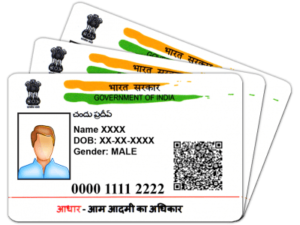
After Presentation, Supreme Court Hands Over 20-Point Questionnaire To Aadhaar Body Chief
NEW DELHI: Ajay Bhushan Pandey, the UIDAI chief who sought to assure the Supreme Court that the Aadhaar database was safe, will have to respond to a 20-point questionnaire drafted by the petitioners that seek to underline the weaknesses in the Aadhaar programme. Mr Pandey had told the court that it was virtually impossible to break into the Aadhaar data and would take billions of years to decrypt the 2048-bit encryption.

The Apex Court last week gave an excuse to the government by making an exception when it allowed the bureaucrat instead of the law officer to present the case on the Aadhaar architecture and also the safeguards built into the system. Mr Pandey addressed to the petitioners questions during the presentation on Tuesday after the court’s permission.
KK Venugopal, the central government top law officer, was suggesting the court to vet the questions that could be asked but Chief Justice of India Dipak Misra, who is the chief of the bench of five judges, felt move would be unnecessary. Justice Misra has asked the questionnaire be handed over to Mr Pandey who would be required to send across the written answers before the next court hearing on Tuesday next week.

The questionnaire’s main aim was to demonstrate gaps in the system that has been used to issue Aadhaar identification often projected to the citizens of India to be more trustworthy than any identity document in India.
The questionnaire includes, an inquiry into whether the UIDAI officials vet the documents submitted by people and it does not take the responsibility for the correctness of the information of the person and have no knowledge if the person being given an Aadhaar number really was a citizen or an Indian national.
Campaigners and experts, who have, time and again, raised the questions about the privacy and the safety of the data, the susceptibility of biometrics to failure, and the misuse of data for profiling or increased surveillance feel that answers to these 20 questions would be instructive to highlight gaps that the centre and the UIDAI usually attempt to paper over.
They even argued that the Aadhaar-must law to access government sponsored subsidies had deprived large number of people, either because their biometrics did not match or because of some other reasons. The UIDAI routinely insists on its stance, that the failure to authenticate about 12 per cent population’s identity does not at all mean that these people would be denied their subsidies. It is also accused of treating a decline in the total number of beneficiaries to savings due to Aadhaar.
Of the questions that have been asked of Mr Pandey, the UIDAI will have to give an answer for the outline the field studies it had carried out to indicate that people were not authenticated were “duplicate enrolments”.
You May Also Read: Aadhaar Was Meant For Ending Corruption In Welfare Schemes, But Deserving Find It Complicated